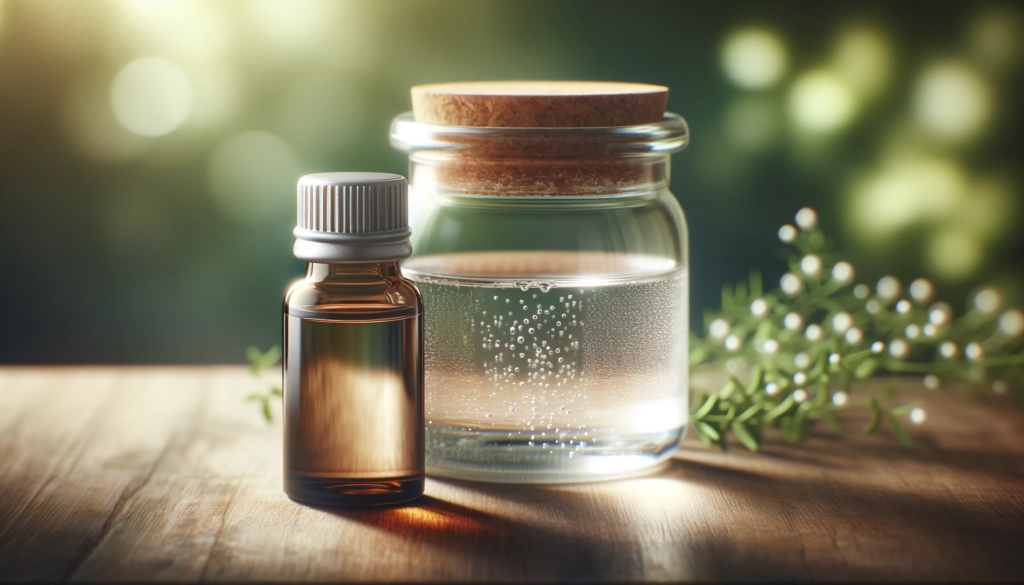Are Essential Oils Water Soluble? Separating Facts from Myths
I wanted to understand more about essential oils and water, so I dug into some research on whether these oils mix with water.
As I read further, I uncovered interesting facts about the science behind oil solubility, how water-based versions are made, and what this means for quality.
What Are Essential Oils?
First, let’s cover the basics. Essential oils are concentrated plant extracts made up of volatile compounds like terpenes and sesquiterpenes. These oils are prized for their natural therapeutic qualities and aromatic scents. However, there’s an inherent trait that affects their versatility – essential oils are hydrophobic.

The Science Behind Solubility
Hydrophobic means these oils do not mix with water naturally. When blended, the oil will simply float on top of the water. This is because of the chemical properties:
- Surface tension – Water has high surface tension, making it difficult for other liquids to break in and blend. Oils float atop this barrier.
- Solubility – The non-polar compounds in oils cannot form bonds with water molecules to dissolve. Like repels like.
So while essential oils contain anti-oxidants and therapeutic agents, their hydrophobic nature hinders versatility in some applications.

Impact of Distillation
Another way oils confront water is during steam distillation, a common extraction method. Hot steam passes through plants, carrying the oils into a cooled chamber.
- The oils initially make contact with water as they transfer from plants to the separator.
- Some oil components dissolve into the water fractions, usually discarded.
- Components like terpenes have low solubility, but esters and aldehydes can reach 0.5-1%.
- This alters the oil yield and scent profile.
So water impacts essential oils in terms of their solubility and extraction outcomes. But what if we want to make them mixable in water-based products? This brings up an important question…
Can Oils Be Made Water-Soluble?
Yes! But it requires altering the oil on a chemical level. Common methods include:
- Adding alcohols like ethanol to reduce oil viscosity and surface tension.
- Using emulsifiers that allow the oil to suspend in water solutions.
- Adding stabilizers to prevent separation.
This produces so-called “water soluble” essential oils which can mix into water without floating or separating. The trade-off is that these are no longer 100% natural plant extracts.
- Synthetically formed – The additives mean the oil is chemically modified.
- Diluted strength – Has high water content as oil solubility is limited.
- Added essences – Often extra fragrance put in to enhance scent.
So achieving water solubility comes at a cost for purity and potency. There are also label concerns…

Assessing Quality
With both natural solubility barriers and chemically altered products, it’s vital we assess oil quality.
- Purity – Verify if 100% pure, not diluted or chemically modified. The most expensive Young Living oils test well here.
- Composition – Does it retain natural therapeutic compounds from plants? Adulteration risks losing these.
- Check extraction method like cold press or steam distillation which give pure yields.
The only exception is flower hydrosols, the water remnants from distillation. As true plant derivatives, these floral waters carry mild oil properties despite solubility in water.
Making informed choices allows obtaining effective, high quality oils to suit the intended purpose.
Key Takeaways
To wrap up, important points on essential oil water solubility:
- Oils have hydrophobic compounds that repel water bonding
- Methods producing “water-soluble” forms use additives to force solubility
- This impacts the therapeutic potency and purity qualities
- Assess labels, processing method, and composition for quality
- Exception is floral hydrosol byproducts from distillation
With these details in mind, we can determine if an oil aligns with desired water compatibility without sacrificing integrity or benefits!

